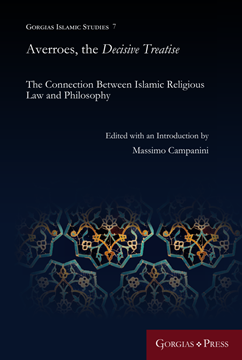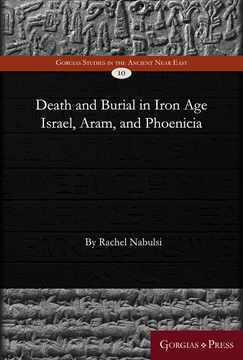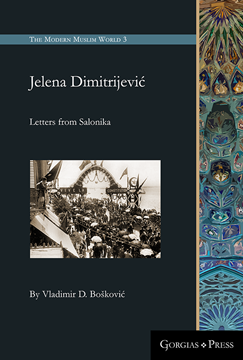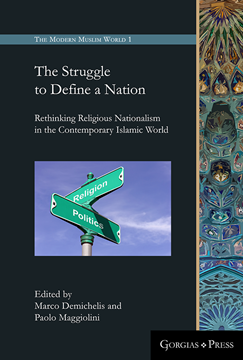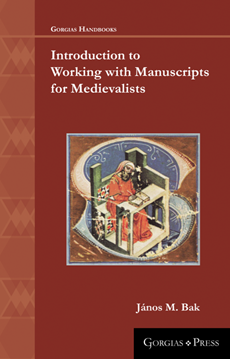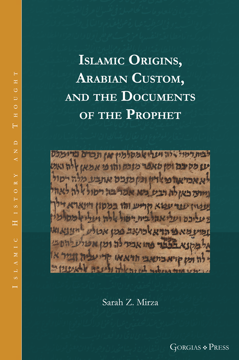Averroes, the Decisive Treatise
The Connection Between Islamic Religious Law and Philosophy
Edited with an Introduction by Massimo Campanini
Series: Gorgias Islamic Studies 7
ISBN: 978-1-4632-0638-3
The Decisive Treatise is perhaps the most controversial work of Averroes (Ibn Rushd, 1126-1198) and belongs to a trilogy which boldly represent the philosophical contribution to Islamic theology of this famous Andalusian commentator on Aristotle. The Decisive Treatise is a fatwa (a legal opinion) that the judge, Averroes, promulgated for his fellow Malikite jurists in order to demonstrate that the study of philosophy is not only licit from the point of view of religious law, but even mandatory for the skilled people. However, many subjects are dealt with in this comparatively short book: An epistemology aimed to show that philosophical truth and religious truth are not in contradiction; a sociology of knowledge pointing out that humans are classified in three classes (philosophers, theologians, common folk); a Qur’anic hermeneutics suggesting how to approach philosophically the Holy Book in agreement with religious requirements and linguistic rules.
$117.00 (USD)
Death and Burial in Iron Age Israel, Aram, and Phoenicia
Series: Gorgias Studies in the Ancient Near East 10
ISBN: 978-1-4632-0640-6
Death and Burial uses archaeological and textual evidence to examine death and burial in Iron Age Israel and Aram. Despite dramatic differences in the religious systems of these peoples, this monograph demonstrates striking connections between their basic material and psychological frameworks for dealing with death.
$182.00 (USD)
Jelena Dimitrijević
Letters from Salonika
Series: Gorgias's Modern Muslim World 3
ISBN: 978-1-4632-0641-3
An English translation of the Letters from Salonika by Jelena Dimitrijević, accompanied by a substantial critical introduction and a commentary. The book comprises author’s impressions from Salonika in the summer of 1908, in the midst of the Young Turk Revolution. The narrative focuses on the question of the “unveiling” of Muslim women, but also vividly portrays the vanished cityscape of Ottoman Salonika and gives accounts of the city’s Turkish, Jewish, Mu’min, and Greek communities.
$114.95 (USD)
The Struggle to Define a Nation
Rethinking Religious Nationalism in the Contemporary Islamic World
Edited by Marco Demichelis & Paolo Maggiolini
Series: Gorgias's Modern Muslim World 1
ISBN: 978-1-4632-0642-0
In the present edited volume, a serious of internationally recognised scholars adopt an inter-disciplinary approach to the study of ‘religious nationalism’ and the ‘nationalization’ of religion, through focusing on case studies and the religious affiliations and denominations of Islam, Christianity and Judaism. The aim of this book is to reconsider the ongoing debate between different communities of the so-called Islamic World regarding the nature of the nation and state, and the role of religion in a nation-state’s institutional ground, both as a viable integrative or segregating factor. It is through focusing on the state dimension, as the subject of collective action or socio- cultural and political representation, that the book proposes to reconsider the relationship between religion, politics and identity in the perspective of ‘religious nationalism’ and the ‘nationalization’ of religion in the contemporary Islamic World.
$214.00 (USD)
Introduction to Working with Manuscripts for Medievalists
By János M. Bak
Series: Gorgias Handbooks 37
ISBN: 978-1-4632-0643-7
A short guide for studying, editing and translating medieval texts in manuscript form, outlining the technical steps for preparing a medieval manuscript for print: evaluating and describing the manuscript itself (transmission, provenance, and physical description), textual criticism (reconstruction, emendation, authenticity, dating, and authorship), and steps to preparing an edition or translation.
$35.00 (USD)
Islamic Origins, Arabian Custom, and the Documents of the Prophet
Series: Islamic History and Thought 17
ISBN: 978-1-4632-0644-4
Early Islamic historical literature attributes several hundred pragmatic documents to the Prophet Muḥammad. The consistent use of epistolary and legal formulae, which are found only in these documents, encourages us to treat these texts as a corpus. In addition to consistent terminology, formulaic structure, and formulae, these texts show remarkable stability through transmission. A comparison of these texts with Umayyad and ʿAbbasid papyri reveals that the Prophet's documents reflect obsolete or otherwise unattested formulae. This study will demonstrate through three case studies the particular functions of these documents in the history of social relations in late antique Arabia.
$149.50 (USD) $119.60 (USD)
